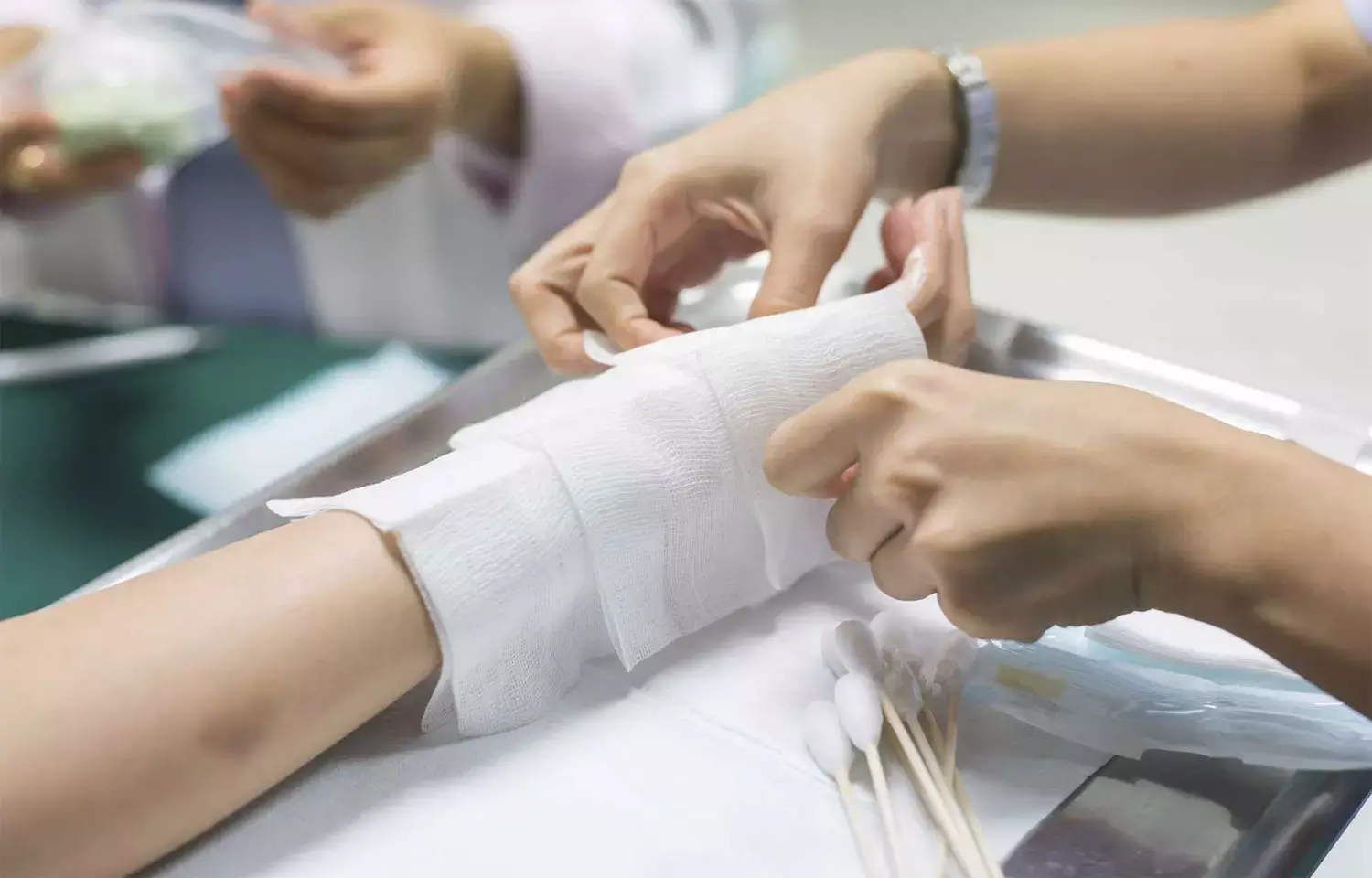- Home
- Medical news & Guidelines
- Anesthesiology
- Cardiology and CTVS
- Critical Care
- Dentistry
- Dermatology
- Diabetes and Endocrinology
- ENT
- Gastroenterology
- Medicine
- Nephrology
- Neurology
- Obstretics-Gynaecology
- Oncology
- Ophthalmology
- Orthopaedics
- Pediatrics-Neonatology
- Psychiatry
- Pulmonology
- Radiology
- Surgery
- Urology
- Laboratory Medicine
- Diet
- Nursing
- Paramedical
- Physiotherapy
- Health news
- Fact Check
- Bone Health Fact Check
- Brain Health Fact Check
- Cancer Related Fact Check
- Child Care Fact Check
- Dental and oral health fact check
- Diabetes and metabolic health fact check
- Diet and Nutrition Fact Check
- Eye and ENT Care Fact Check
- Fitness fact check
- Gut health fact check
- Heart health fact check
- Kidney health fact check
- Medical education fact check
- Men's health fact check
- Respiratory fact check
- Skin and hair care fact check
- Vaccine and Immunization fact check
- Women's health fact check
- AYUSH
- State News
- Andaman and Nicobar Islands
- Andhra Pradesh
- Arunachal Pradesh
- Assam
- Bihar
- Chandigarh
- Chattisgarh
- Dadra and Nagar Haveli
- Daman and Diu
- Delhi
- Goa
- Gujarat
- Haryana
- Himachal Pradesh
- Jammu & Kashmir
- Jharkhand
- Karnataka
- Kerala
- Ladakh
- Lakshadweep
- Madhya Pradesh
- Maharashtra
- Manipur
- Meghalaya
- Mizoram
- Nagaland
- Odisha
- Puducherry
- Punjab
- Rajasthan
- Sikkim
- Tamil Nadu
- Telangana
- Tripura
- Uttar Pradesh
- Uttrakhand
- West Bengal
- Medical Education
- Industry
Albumin Administration in Severe Burns fails to Improve survival: Study

A recent study assessed the effect of albumin administration on mortality rates in patients with severe burns from the dataset of the Diagnosis Procedure Combination Database in Japan. Severe burns often lead to significant fluid loss which necessitates careful fluid resuscitation to maintain hemodynamic stability. Albumin is sometimes administered in these cases to help restore blood volume and improve patient outcomes.
The study spanned from April 2014 to March 2021 and focused on patients the aged 15 years and older who were admitted with severe burns which was defined by a burn index of 15 or more. The study categorized 2,492 eligible patients into two groups, one group who received albumin within the first two days of admission (albumin group, n = 1,128) and the other group who did not receive albumin (control group, n = 1,364). To ensure a more accurate comparison, the research employed a one-to-one propensity score matching method, which resulted in 530 matched pairs of patients from each group.
The primary outcome measured was the 28-day mortality rate where the study found no significant difference in mortality between the two groups. 21.7% of patients in the albumin group died within 28 days when compared to 22.8% in the control group. The risk difference was calculated to be -1.1%, with a 95% confidence interval ranging from -6.1% to +3.9% that indicated the variation in mortality rates between the two groups.
The findings suggest that the administration of albumin within two days of admission does not significantly impact mortality during the acute phase in patients with severe burns. This result challenges the notion that albumin administration is a critical factor in reducing short-term mortality in these patients. The outcomes of this study imply that further research, particularly randomized controlled trials, is necessary to confirm these findings and explore the potential benefits of albumin in other aspects of burn management.
Overall, while albumin administration is a common practice in the management of severe burns which may not be associated with improved survival during the acute phase. Therefore, Clinicians may need to reconsider the routine use of albumin in this context and focus on other aspects of burn care that might have a more significant impact on patient outcomes.
Reference:
Nakamura, K., Isogai, T., Ohbe, H., Nakajima, M., Matsui, H., Fushimi, K., & Yasunaga, H. (2024). Effect of fluid resuscitation with albumin on mortality in patients with severe burns: A nationwide inpatient data analysis. In Burns. Elsevier BV. https://doi.org/10.1016/j.burns.2024.07.031
Neuroscience Masters graduate
Jacinthlyn Sylvia, a Neuroscience Master's graduate from Chennai has worked extensively in deciphering the neurobiology of cognition and motor control in aging. She also has spread-out exposure to Neurosurgery from her Bachelor’s. She is currently involved in active Neuro-Oncology research. She is an upcoming neuroscientist with a fiery passion for writing. Her news cover at Medical Dialogues feature recent discoveries and updates from the healthcare and biomedical research fields. She can be reached at editorial@medicaldialogues.in
Dr Kamal Kant Kohli-MBBS, DTCD- a chest specialist with more than 30 years of practice and a flair for writing clinical articles, Dr Kamal Kant Kohli joined Medical Dialogues as a Chief Editor of Medical News. Besides writing articles, as an editor, he proofreads and verifies all the medical content published on Medical Dialogues including those coming from journals, studies,medical conferences,guidelines etc. Email: drkohli@medicaldialogues.in. Contact no. 011-43720751


